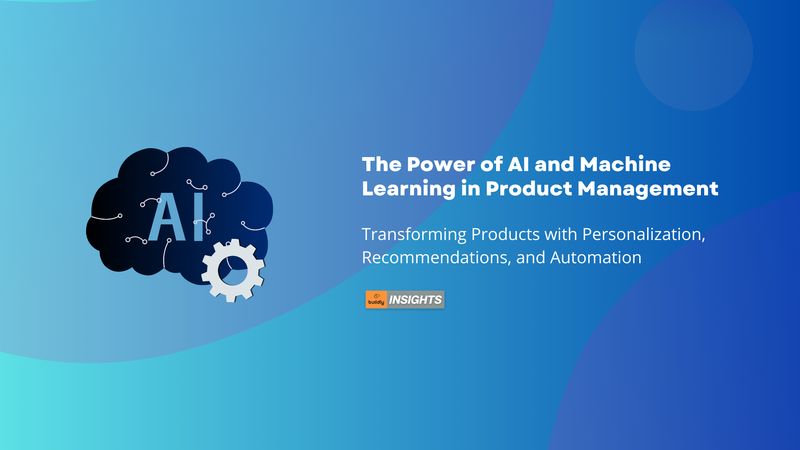The Power of AI and Machine Learning in Product Management

- admin
- Oct. 3, 2023
The Power of AI and Machine Learning in Product Management
Product managers are embracing the great potential of artificial intelligence (AI) and machine learning (ML) to alter the way they build and manage products in today's fast-paced digital environment. These disruptive technologies are significantly changing how we interact with goods and services, moving personalization, recommendation systems, and automation across numerous industries.
Personalization for Experience Customization
Imagine living in a society where all of the products and services that you use are personalized for you. This is made possible by AI and ML. These technologies are being used by product managers to study user behavior and preferences, enabling them to design customized experiences. Personalization increases user engagement and happiness, which fosters loyalty. It may involve proposing the ideal movie on a streaming service or suggesting the best product for your needs.
The Magic of Recommendation Systems
The power of recommendation algorithms is undoubtedly something you've noticed whether watching video or shopping online. These systems, which are driven by AI and ML, are able to recognize your preferences and recommend goods, services, or information that are relevant to you. This offers more potential for cross-selling and upselling, which will raise income and improve user experiences for product managers.
Decision-Making Using Data-Driven Insights
The era of intuition-driven choices is over. Product managers may now make decisions based on data thanks to AI and ML. These technologies offer priceless insights into user behavior, market trends, and product performance by analyzing enormous datasets. With this information, product managers may more effectively hone their strategy, rank features, and promote product advancements.
Streamlining Operations with Automation
Another game-changer in product management is automation. Virtual assistants and chatbots powered by AI respond to client questions, freeing up important human resources. Additionally, automating the processes for feedback analysis and response guarantees that user problems are handled effectively and swiftly.
Using the Power of Natural Language Processing (NLP)
It's important to comprehend client sentiment. Insights are derived from unstructured text data, such as customer reviews and comments on social media, using AI-powered NLP algorithms. This amount of knowledge makes it easier to pinpoint areas where the product can be improved and more efficiently deal with problems.
Investing in Fraud Detection and Security
AI and ML strengthen security measures at a time of rising cyber threats. These technologies are excellent at spotting irregularities and potential threats while preserving the integrity of the product and user data. Product managers must prioritize security features and adapt to emerging risks.
Optimizing Resources and Costs
Through resource allocation, supply chain optimization, and predictive maintenance, AI helps reduce the cost of products. Product managers may make sure things are provided quickly and affordably, which will ultimately boost profits.
It takes time to integrate AI and ML into product management. Collaboration with engineers, data scientists, and other stakeholders is crucial. For these technologies to be in line with the aims of the product and user requirements, clear targets, regular performance monitoring, and iterative improvements are essential.
To stay competitive in today's market, product managers must remain updated on the latest advancements in AI and machine learning. Adopting these technologies not only guarantees the success of existing offers but also prepares the path for futuristic, user-focused solutions.

